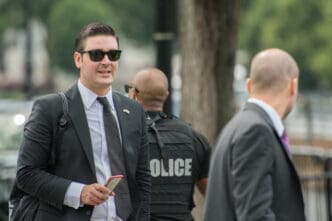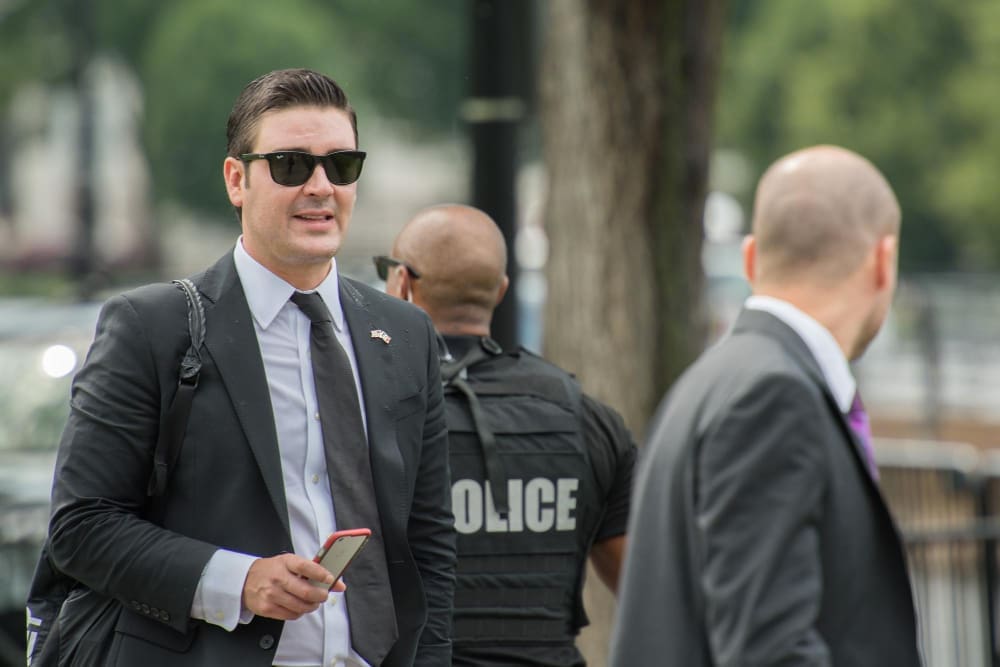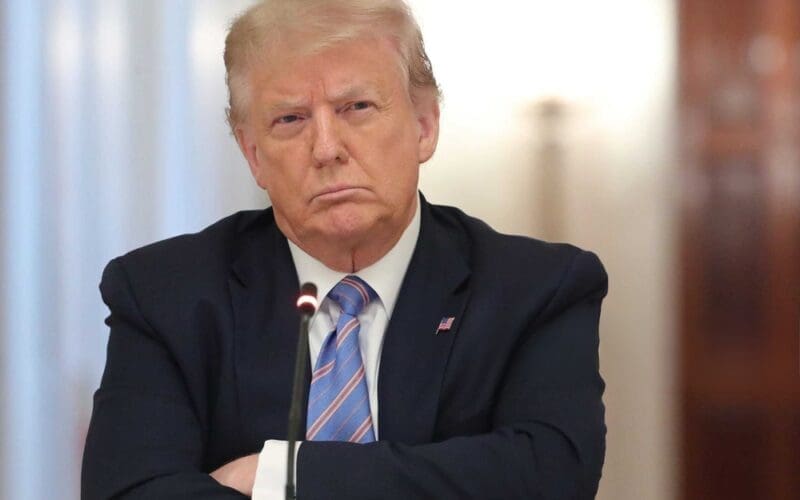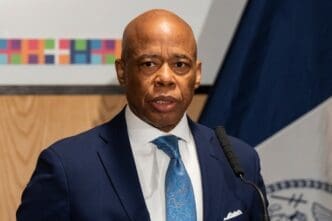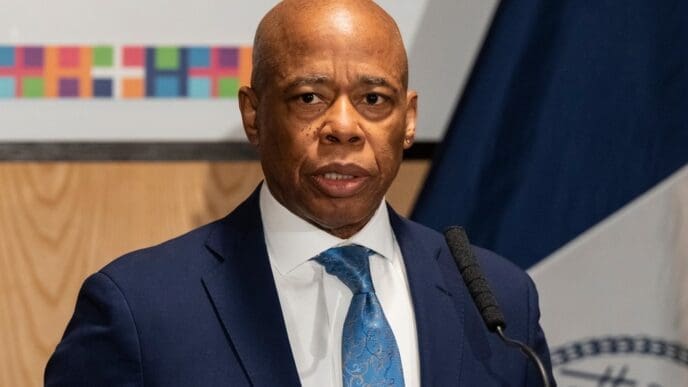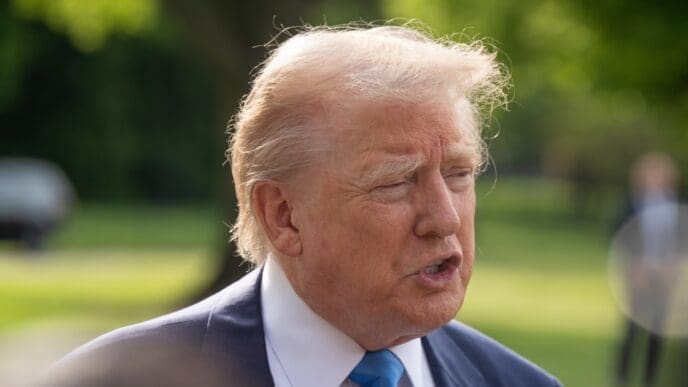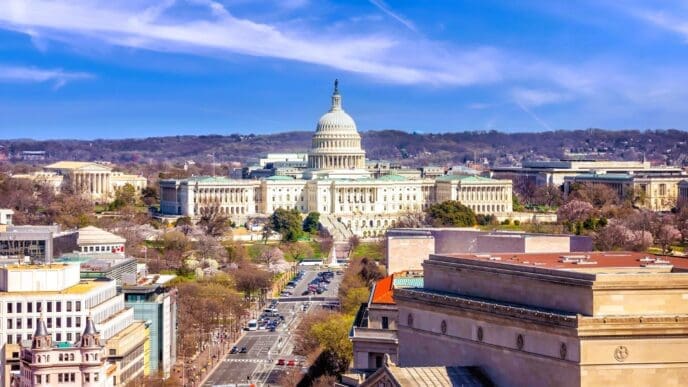KEY POINTS
- FBI agents are being reassigned to conduct street patrols in Washington, D.C., a move that has raised concerns among current and former law enforcement officials.
- The reassignment of agents to community policing roles is part of a larger pattern of the FBI being tasked with duties outside its core mission, including immigration enforcement and document reviews.
- The operational shifts and leadership instability have led to plummeting morale within the FBI, with concerns about a potential “brain drain” of skilled agents.
WASHINGTON – FBI agents are being pulled from their specialized investigative roles to conduct street patrols alongside local police in the nation’s capital, a move directed by the Trump administration that is raising alarms among current and former law enforcement officials. The deployment, part of President Donald Trump’s declared “crime emergency” in Washington, D.C., marks the latest instance of the bureau’s elite personnel being tasked with duties far outside their training and expertise, diverting them from complex national security and criminal cases.
A Mismatch of Skills and Equipment
While federal and local law enforcement partnerships are common for specific task forces, the assignment of FBI agents to community policing roles is highly unusual. Agents, who are often recruited for their backgrounds in law, technology, or intelligence analysis, are not trained as beat cops, a distinction that officials warn could create dangerous situations for both the public and the agents themselves.
“FBI agents are not police officers,” said Andrew McCabe, a former FBI deputy director. “Most of them don’t come to the FBI from a background as a police officer. So they don’t have the training and the skillset and the experience of doing that work.”
The differences in training are stark. Much of an agent’s work is investigative and analytical, often performed at a desk. They lack the extensive field training that local police receive in de-escalation, identifying street-level threats, and conducting vehicle stops—one of the most hazardous duties for an officer. Furthermore, the FBI’s use-of-force policy has a lower threshold for using lethal force, and agents are not typically equipped with non-lethal tools like tasers or pepper spray, which are standard for D.C.’s Metropolitan Police Department.
A Pattern of Repurposing
The D.C. patrols are not an isolated event but rather the latest in a series of reassignments that have stretched the bureau’s resources and shifted its focus. Under the Trump administration, the FBI has been repeatedly directed to address priorities outside its core mission.
Immigration Enforcement
In 2025, hundreds of agents were reassigned to immigration-related duties to assist ICE. The move sparked internal concern that critical national security investigations, including those focused on espionage and terrorism, would be neglected. According to law enforcement sources, some agents clashed with their immigration enforcement counterparts, refusing to engage in tactics they viewed as potential racial profiling or unconstitutional.
The Epstein File Review
More recently, in March, agents across every division were ordered to halt their regular casework to review and redact documents related to the late financier and convicted sex offender Jeffrey Epstein. The effort, which involved agents working grueling 12-hour shifts, pulled resources from active investigations into threats from China and Iran.
Internal Turmoil Shakes the Bureau
These operational shifts are occurring against a backdrop of significant internal upheaval. The recent firings of senior officials, including former acting director Brian Driscoll, have fostered a climate of fear and uncertainty within the agency. Driscoll was reportedly dismissed after resisting the administration’s plan to quickly fire more than 100 mid-level and senior employees.
The combination of politically-driven assignments and leadership instability has sent morale plummeting. “Morale is the worst I’ve seen,” one law enforcement source said. “The bureau is becoming unrecognizable. Lots of people are weighing really difficult decisions right now.”
Despite the internal concerns, FBI Director Kash Patel has praised the D.C. initiative. He noted on social media that agents were involved in 10 of 23 arrests on Monday night, writing, “When you let good cops be cops they can clean up our streets and do it fast.”
The continued repurposing of the FBI for patrol and administrative tasks has created fears of a potential “brain drain,” as highly skilled agents and analysts consider leaving for the private sector. The deployment in D.C., currently set for a 30-day period, serves as a potent symbol of the pressures facing an agency caught between its traditional mission and shifting political winds.

